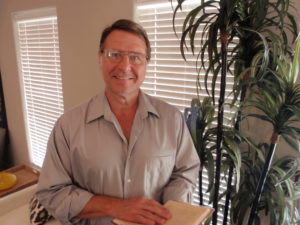

By Dr. M. Andrew Holowchak
Philosopher and Historian
Many professors at higher-level academic institutions profess to be practitioners of a Socratic method of teaching, which is a method of students arriving at understanding by a teacher “pestering” them with probing questions that lead to self-searching. Many, if not most, of such practitioners presume that the method facilitates true learning. Socratic teaching and learning are not reducible, in John Dewey’s words, to pouring information into the heads of students, but they are a matter of drawing out what is, in some sense, already there.
Socrates (469–399 B.C.) was one of Ancient Athens’ most unusual citizens. He professed a profound love of Athens insofar as he claimed he could never offer a return to Athens (or its citizens) as valuable as what he had, throughout his life, gained from the cosmopolitan polis.
What was unique about Socrates was his zetetic (seeking) manner of living. He renounced all pleasures other than the pleasure he experienced in searching for knowledge, which he said he never possessed. He claimed to be wise only inasmuch as he recognized that he, unlike other prominent Athenians, understood that he knew nothing, and thus, that human wisdom counted for nothing next to divine wisdom.
Never claiming to have any (real) knowledge—that is, knowledge of things substantive such as of the virtues piety, wisdom, justice, self-control, and courage—he spent his days throughout his life in pursuit of knowledge. His daily zetetic activity showed that he did not consider that activity fatuous. That demonstrates that he, at least, thought that acquisition of knowledge was humanly possible. Otherwise, his life would have been as pointless as searching to find great-tailed grackles, birds endemic to hot places like Texas, in Anchorage, Alaska.
Socrates’ method of pursuit was elenchus—a method of dialectic exchange in which the one chiefly in pursuit of knowledge, usually Socrates, asked an interlocutor a number of questions, pointedly articulated to get at the nature of a particular virtue, or even virtue in general. After expostulation of an initial definition from an initial question—e.g., “What is virtue?”—questions would be crafted to expose insufficiencies in the proposed definition—e.g., “Whatever is just is virtuous” (Meno)—with the expectation of either refinement of the proposed definition or proposal of a different definition, in keeping with flaws in the definition, exposed by later questions.
The end of all such elenctic Socratic dialogs was aporia—a state of puzzlement or confusion which characterizes an interlocutor who came to recognize that he did not or might not know what he had thought he knew. In Plato’s Socratic dialogs, interlocutors in aporia often walk away in anger from Socrates, but sometimes walk away accepting that they must now seek the knowledge they hitherto thought that they had.
Socrates, Plato tells us in Apology, made few friends through his practice as he showed prominent Athenian politicians, poets, and craftsmen that they did not know the things they thought that they knew (things such as justice, piety, and beauty). He doubly irritated many, as the youth often imitated his methods. Hence, he was ultimately sentenced to death because of numerous charges, each reducible to corruption of the young.
Socrates was not supposed to be sentenced to death, for Athenian democracy was in the main largely tolerant of differences of opinion—even somewhat disruptive differences of opinion (consider Epicurus’ philosophical Garden, which placed just outside Athens, preached a minimalist sort of hedonism, through freedom from mental disquiet, ataraxia, and social withdrawal). Socrates merely could not promise to stop doing what was considered by many to be so disruptive of daily Athenian affairs—his daily dialectic.
There are too few genuine Socrateses in today’s higher education and even fewer students, willing to be challenged dialectically. Anyone who has taught in higher education for more than two decades has doubtless come to recognize that the “New Millennials” and even the generation beyond them, the students born in or after 2000, are difficult, if not impossible to teach. They are, in the words of Professor Elayne Clift, “devoid of originality, analytical ability, [and] intellectual curiosity.” She continues, “Having passed through a deeply flawed education system in which no one is paying attention to critical thinking and writing skills, they just want to know what they have to do to make their teachers tick the box that says ‘pass.’” All the other teachers do that.
Why? Students have an effective tool, rage, through a sense of academic entitlement, which many utilize as a security blanket. When they perform poorly, as they often tend to do, they blame their poor performance on poor teaching. Teachers, due to pressure aligned with need of strong evaluations, seldom challenge inculpation. They are too afraid of poor evaluations and direct complaints, which may readily result in loss of adjunct work or failure to attain tenureship. Many teachers, I believe, now sheepishly accept the notion that they, not the students, are the problem. Moreover, students are also in a position of power because they are viewed as consumers, and institutions are in the market to attract as many students each year as they can attract. Education is increasingly following the pattern of successful businesses, which follow the mantras: The more customers, the more money, and the customer is always right.
Socratic teaching in such a milieu is impossible, because it is designed principally to expose ignorance. Today’s students are entitled to a passing grade without working because they already know everything they really need to know. Each is a sun of his own solar system—no binary stellar systems here!—and the orbiting bodies orbit for the sake of that sun. Says Daniel Mendelson, “Perhaps because they have received more attention than any generation in the history of Homo sapiens, millennials seem to be convinced that every aspect of their existence, from their love lives to their struggles with reverse peristalsis, is of interest not just to their parents but to everyone else as well.”
Plato millennia ago saw the problem as one of pure democracy (demokratia). In a democracy, according to Plato in Republic, each person thinks of himself as the equal of all others in all ways. The city is full of freedom and free speech and everyone is free to do what he wants to do when he wishes to do it. Democracy, constitutionally, is a “supermarket of constitutions,” as it embraces all persons and all rules. “[A democrat], always surrendering himself to whichever desire comes along, lives as if it were chosen by lot” (557a–561b).
Thomas Jefferson, of course, was aware of the pitfalls of democracy. There can be no such thing as a pure democracy over a large expanse of land, he avers, but only in a small parcel, such as a ward, where smallness of political space enables all to have an equal share in political matters. Hence, Jefferson, while in France, speaks to James Madison (30 Jan. 1787) of the need of representative government, where “the will of every one has a just [and not a direct] influence,” for affairs of state and country. Even with representative government, he continues to Madison, “the mass of mankind … enjoys a precious degree of liberty & happiness.” Nonetheless, “it has it’s evils too: the principal of which is the turbulence to which it is subject,” because of its embrace of freedom of expression.
Yet the pitfall of turbulence is often massively misconstrued or hyperbolized by scholars—e.g., Conor Cruise O’Brien. Jefferson writes thus in a letter to Madison (20 Dec. 1787) of Shays’ Rebellion, an event which horrified many, especially New Englanders. “The late rebellion in Massachusetts had given more alarm than I think it should have done. Calculate that one rebellion in 13 states in the course of 11 years, is but one for each state in a century & an half. No country should be so long without one.” Earlier in the same year (Jan. 30), he writes to Madison, “A little rebellion now and then is a good thing & as necessary in the political world as storms in the physical.” Some six years later (3 Jan. 1793), he writes to William Short of the sanguinary effects of the French Revolution: “My own affections have been deeply wounded by some of the martyrs to this cause, but rather than it should have failed, I would have seen half the earth desolated. Were there but an Adam and an Eve left in every country, and left free, it would be better than as it now is.” The bloodshed of a rebellion is, of course, abominable in the short term, but “this evil is productive of good. It prevents the degeneracy of government, and nourishes a general attention to the public affairs.” In sum, what appears as a pitfall of democracy on a large scale is really its great strength.
Jefferson did have an antidote—a means of preventing too many rebellions. That was periodic constitutional reform, effected through robust discussions by the people themselves. John Stuart Mill agrees. The strength of a vital democracy, Mill notes, is not only its tolerance of difference of opinions, but also the vitality with which it aims to iron out those differences through respectful, progressive debate. Robert Healey agrees: “Democracy is a means of determining courses of action through use of open and admitted conflict of opinion. Its ideal is not the achievement of a homogeneous society, but true cooperation, the working together of different people and groups who have deliberated with each other.” Thus, the aim of democratic thriving is citizens’ engagement with the institution through collisions of ideas. Those collisions are not purposeless, but aim at truth or at least heightened understanding of problems or issues in a solemn effort toward resolution.
Robust discussion is what is missing in the educative climate of the twenty-first century which worships a new, radical liberalism—toleration of diversity of opinion as an end, not as a means. The teaching milieu in the twenty-first century embraces tolerance of differences, but not progress with the aim of ironing out those differences through respectful debate—the Jeffersonian ideal behind periodic constitutional renewal. Thus, with disavowal of the Jeffersonian ideal, there is avowal of Plato’s concept of democracy in which freedom has become an end, and a deteriorative end, and not a means to an end—human flourishing.
We ought to strive today to recognize and aim at the Jeffersonian democratic ideal, not the Platonic degenerative conception. Within the ideal of Jeffersonian republicanism, there not only is room for Socratic methods of teaching, there also is need for Socratic methods of teaching. Why? It is, as Jefferson noted, better to have turbulent liberty than quiet servitude.
Originally published by History News Network, 12.01.2019, reprinted with permission for educational, non-commercial purposes.







